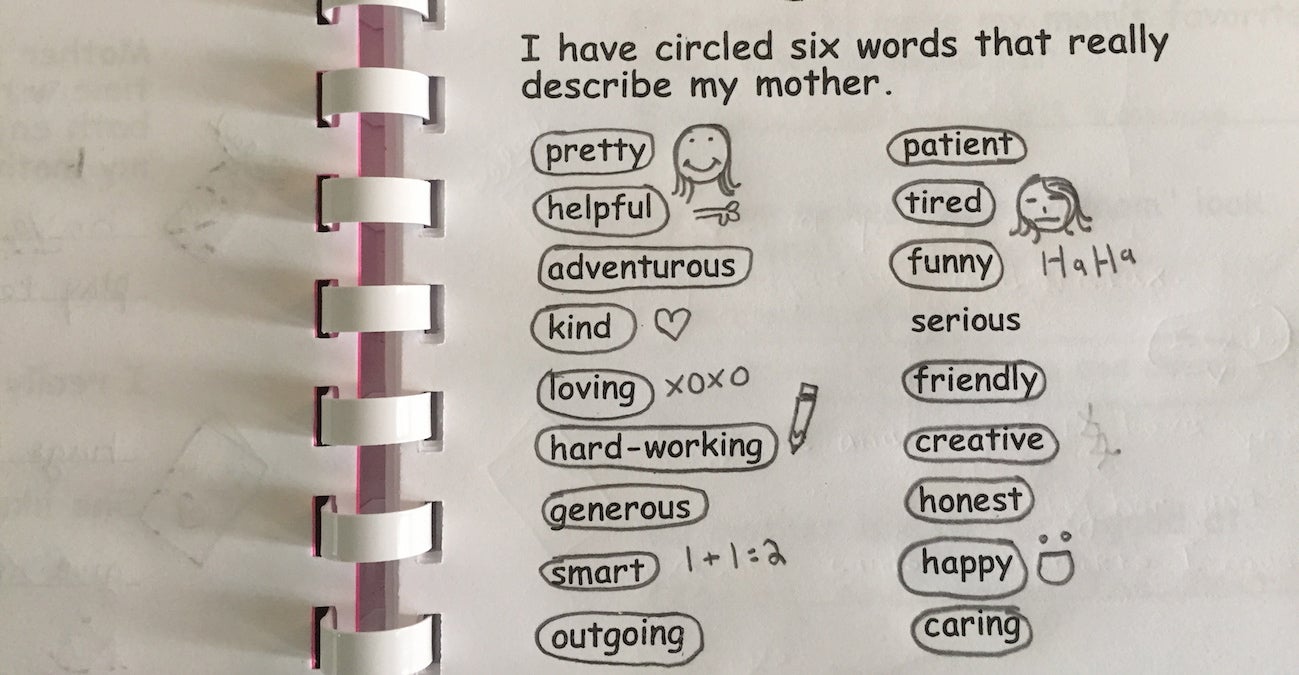When your kids manage to amaze you

(Courtesy of Courtenay Harris Bond)
One of the ways that children render their existence tolerable to their parents — giving us the stamina to endure their fiery outbursts and relentless demands — is through their uncanny ability to amaze us at the most unexpected times.
For instance, my 9-year-old son suddenly decided the other morning to declare a temporary détente in his ongoing war with his younger sister and actually help her with something.
Griffin sat on the floor with Jane, 5, before school and guided her through the excruciating process of learning to tie her shoes, a task I had tried to assist her with countless times before and failed.
To my surprise, however, Griffin not only exhibited patience, but also met with success.
“Now make two bunny ears and wrap them around each other,” he calmly instructed.
“I did it!” Jane exclaimed.
And I was left to marvel at their unforeseen collaboration, temporarily basking in the warmth of their shared accomplishment.
But the next day, when Jane and I were alone, she started to get discouraged all over again.
“They keep coming undone!” Jane wailed.
“I know it’s frustrating,” I said, unable to resist adding the cliché that “practice makes perfect.”
“No,” Jane retorted. “Practice doesn’t make perfect because nothing’s perfect. Practice makes better.”
I found myself vigorously nodding at her wisdom, encountering one of those parental moments when you realize that your children are only masquerading as annoying idiots but are actually miniature sages.
My husband and I frequently experience such epiphanies with Griffin’s twin sister, Georgia, who often seems much older than her 9 years as she lets us in on secrets that we forgot we knew — or never even knew at all.
In a book she made for Mother’s Day, Georgia said that if I were a food, I would be a “Belgium” waffle. And I immediately understood that not only was she correct, but that I also wanted one right then and there.
Georgia’s perceptiveness occasionally takes a more serious turn, such as when she lets me know that I’m not actually listening to what she is saying and helps me slow down enough to hear what she is feeling.
In these moments, Georgia reminds me that my talking is not as important as her talking — that if I cannot resolve the frustration she is experiencing, at least I can let her release it into the open air, which is often the best remedy of all.
For example, the other day after school Georgia was crying about how much she hated homework, how tired she was of all the worksheets and how hard the assignments sometimes were.
I kept asking, “Do you want me to help?” I kept urging her to take a break. “Go out in the yard and play,” I kept saying.
“No, I want to do my homework,” Georgia finally looked up at me and blubbered. “But I want to keep crying about it. That will make me feel better.”
And I realized how she made such perfect sense: that sometimes we don’t want to take care of the tasks life confronts us with, the ones that intrude with their compulsory inevitability. We know we have to execute these duties, but whining about them a little bit helps make them more palatable.
Furthermore, my children’s insights sometimes offer me a greater sense of self-awareness, even if that knowledge ends up being painful.
“I circled ‘patient,'” Georgia told me when she gave me the Mother’s Day book that had a list of adjectives she was supposed to select from to describe me. “You aren’t really very patient, but I felt bad not choosing it.”
I got the point, just as my son’s Mother’s Day project clarified for me exactly how my OCD affects him.
In response to the prompt, “I’m not quite sure why mom always…” Griffin wrote, “cleans the house when it’s already clean.”
And to, “The most interesting thing about my mom’s life so far is,” he responded, “that she’s almost never late.”
Though these were not the personality traits and life experiences I would have hoped my son would highlight, I really couldn’t quibble with their accuracy. My husband and I just shook our heads and laughed.
And ultimately, that is the most amazing part of having children, when they indicate that it may be time to lighten up and stop worrying so much because they really are smarter than you already — and pretty much squared away.
WHYY is your source for fact-based, in-depth journalism and information. As a nonprofit organization, we rely on financial support from readers like you. Please give today.

